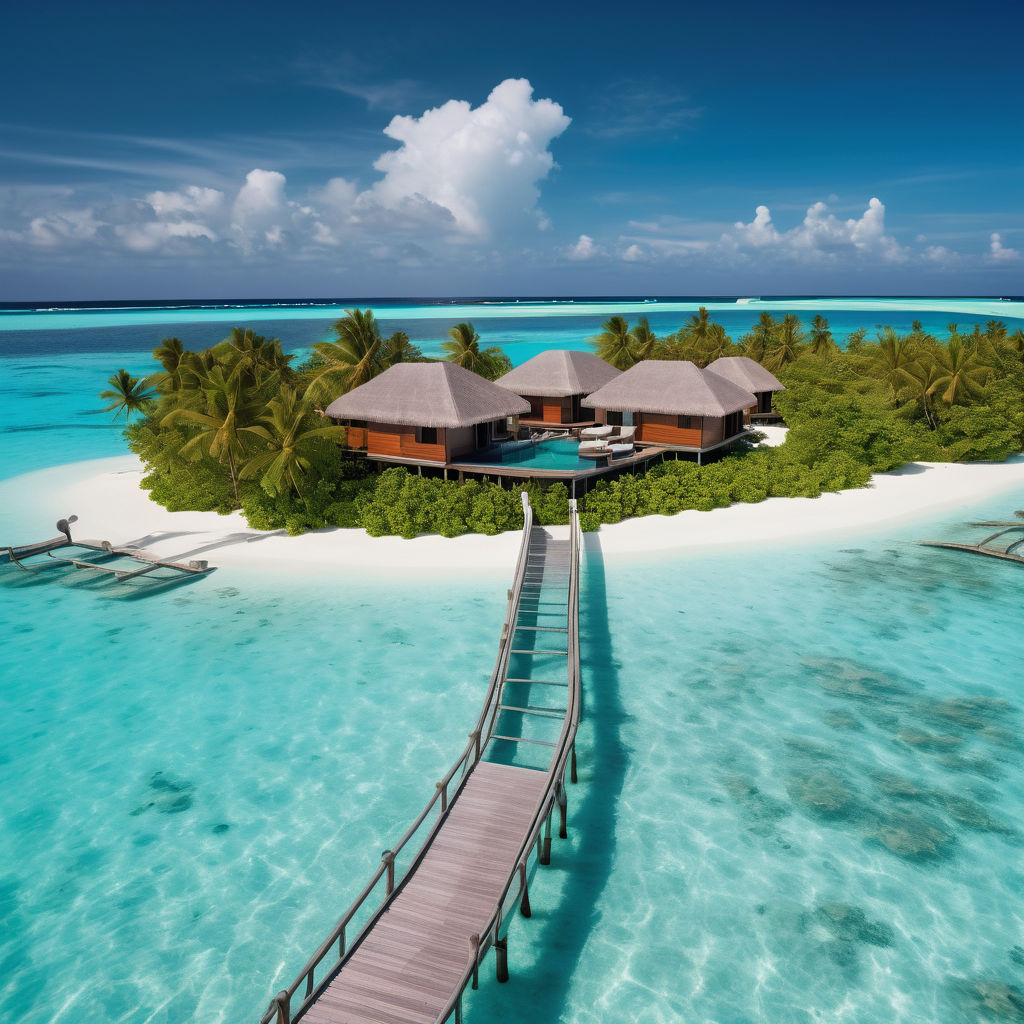Introduction to the Maldives: A Tropical Paradise
Discovering the Maldives: Culture, Tradition, and Cross-cultural Dynamics

Introduction to the Maldives
The Maldives is a tropical paradise located in the Indian Ocean, southwest of Sri Lanka and India. Comprising around 1,200 coral islands grouped into 26 atolls, the Maldives is renowned for its stunning white-sand beaches, crystal-clear turquoise waters, and vibrant coral reefs teeming with marine life. The capital city, Malé, is the political and economic hub, featuring bustling markets, historic mosques, and a rich blend of modern and traditional Maldivian culture. The cultural heritage of the Maldives is a unique blend of South Asian, Arab, and African influences. This rich cultural tapestry is reflected in the nation’s music, dance, and art forms. Traditional music such as Boduberu, a form of drumming, and the Dhivehi language, which has its roots in Sanskrit, play significant roles in the cultural identity of the Maldivian people.
Cross-national and Cross-cultural Understanding
Maldivians generally exhibit a welcoming and open attitude towards other cultures, a trait fostered by the country’s historical role as a crossroads for maritime trade routes and its thriving tourism industry. This openness is evident in the numerous cultural exchanges, educational programs, and international partnerships that promote cross-cultural understanding. Cultural exchanges are a vital part of life in the Maldives. The country hosts a variety of festivals and events that celebrate both local and international traditions. The annual Maldives Tourism Week, for example, not only promotes the natural beauty of the islands but also serves as a platform for cultural exchange between Maldivians and visitors from around the world. Additionally, the Maldivian Cultural Festival showcases traditional music, dance, and crafts, fostering mutual appreciation and understanding. Educational programs in the Maldives emphasize global awareness and cross-cultural understanding. Schools and universities incorporate multicultural perspectives into their curricula, encouraging students to appreciate and respect diversity. International partnerships with institutions in countries such as India, Sri Lanka, and the United Kingdom facilitate student and faculty exchanges, enriching the educational experience and fostering global connections.
Interactions and Social Dynamics
Typical interactions between Maldivians and foreigners are characterized by warmth, respect, and a strong sense of community. Social behaviors in the Maldives reflect a blend of traditional customs and contemporary influences, emphasizing respect for others, hospitality, and communal living. Communication styles in the Maldives are generally direct yet courteous. Dhivehi is the official language, but English is widely spoken, especially in tourist areas and the capital. This multilingualism facilitates interactions with tourists and expatriates, making it easier for them to integrate into the local community. Cultural norms in the Maldives place a strong emphasis on respect for elders, community involvement, and a relaxed approach to time. These norms create a welcoming and inclusive atmosphere for foreigners, who often find it easy to adapt to the local way of life. Public displays of affection are generally limited, in line with Islamic customs, but social gatherings and communal activities are vibrant and inclusive.
Views on Dating and Relationships
Attitudes towards dating and relationships with foreigners in the Maldives are generally open and accepting, though they are influenced by cultural and religious values. Maldivians recognize the opportunities for cultural exchange and personal growth that such relationships can bring. However, cultural expectations and traditions play a significant role in shaping these views. Family involvement is crucial in relationships in the Maldives, with elders often playing a significant role in the approval process. Traditional customs emphasize respect, patience, and the gradual building of trust in relationships. While modern dating practices influenced by global trends are becoming more common among younger generations, traditional values still hold sway in many communities.
Marriage and Family
Marrying a foreigner in the Maldives involves navigating both legal and social considerations. Legally, the country has clear regulations governing marriage, including residency requirements and the need for proper documentation. Socially, cross-cultural marriages are generally accepted, though couples may face challenges related to cultural differences and integration. Familial acceptance is a key factor in cross-cultural marriages. Maldivian families can be protective, and gaining their approval is often essential for the relationship's success. However, the diverse cultural landscape of the Maldives means that many families are already familiar with and accepting of different cultural backgrounds, which can facilitate smoother integration for foreign spouses. Trends in cross-cultural marriages reflect the Maldives' open and inclusive society. Many Maldivians who travel abroad for education or work form relationships with individuals from various cultures, bringing back diverse customs and traditions that enrich the local community.